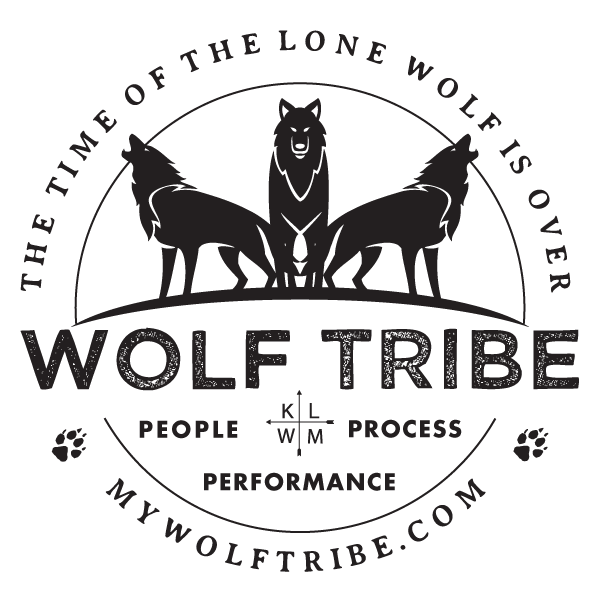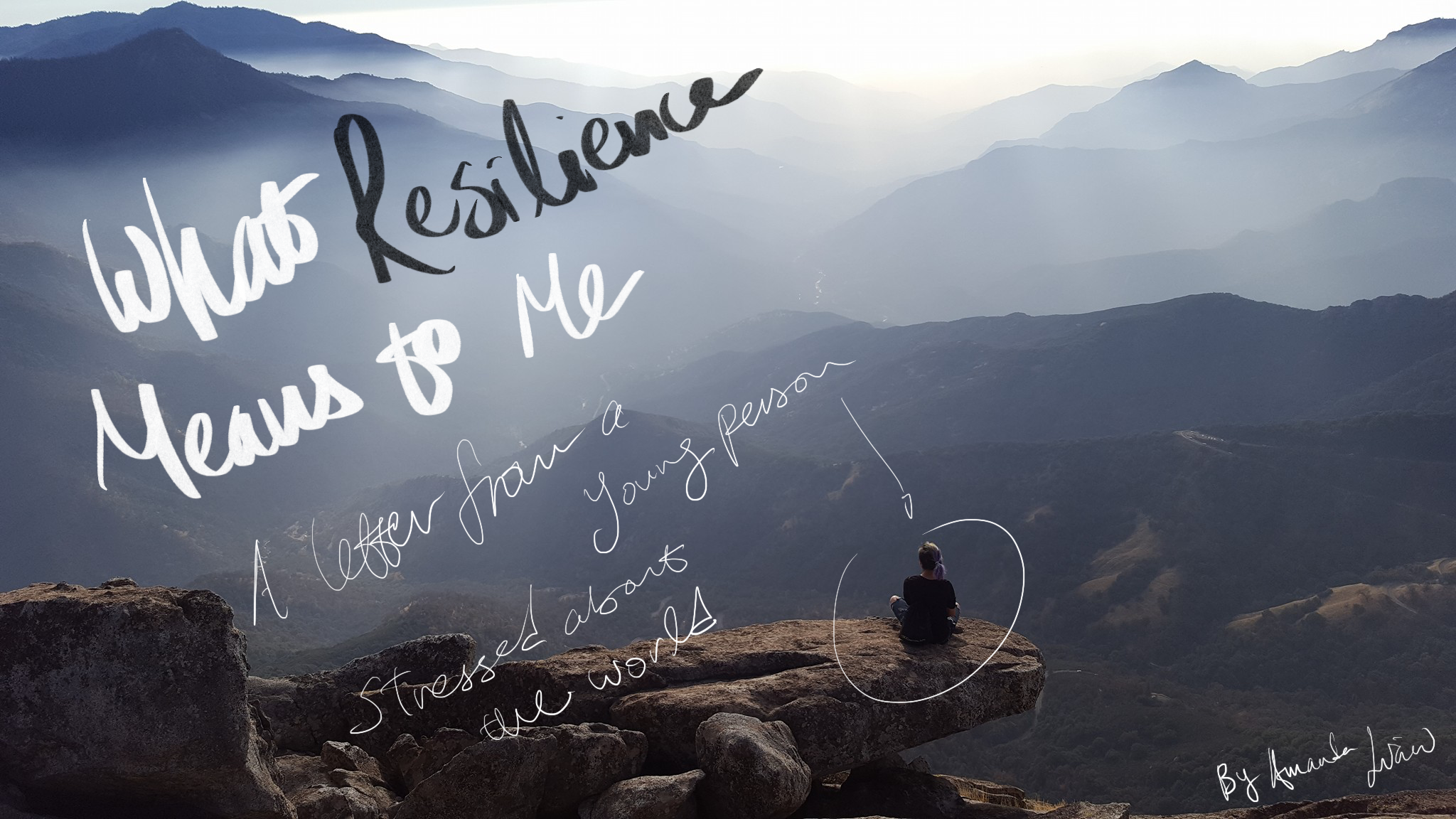What Resilience Means to Me: A Letter From A Young Person Stressed About The World
“Resilience means that I am strong at my core, capable of change, and can come out okay on the other side.”
It is one of those qualities that we slap on college applications and resumes, the majority of us simultaneously expecting to possess it while hoping we would never be tested. It is also a word that has been thrown out very often in the last two months, largely by marketers in the name of solidarity or by companies that have assumed the responsibilities of predicting our near futures.
But what does it actually mean to have resilience?
I started asking this question years ago when I descended into my first bout of depression. I was barely 15 and hopelessly clutching to platitudes about the value of life and finding purpose in work. I’m barely 25 now, this cohort of us having grown through one pandemic, two recessions, and a looming environmental threat, and I’m still just scratching the surface of philosophical thought around this concept.
So here is my attempt at summarizing ten years of reflection on a quality being stressed at this time that, in my opinion, is actually a concept far more difficult to grasp than may be advertised.
Resilience is not an act, but a practice.
“…everything can be taken from a man but one thing: the last of the human freedoms – to choose one’s attitude in any given set of circumstances, to choose one’s own way. And there [are] always choices to make. Every day, every hour…” – Viktor Frankl, Man’s Search for Meaning
Reading Viktor Frankl’s account of his personal experiences in a concentration camp moved me to tears many times. Being drawn into his words leaves little space for personal tragedy but it isn’t possible to linger in the pathos of war and imprisonment for too long. Doing as well as I could to remember early on that the spheres of individual suffering can’t be compared, I looked to his words for guidance on my particular reality.
This is the question at the core of his text – at the edge of humanity, how do people find the will to live? With my penchant for poetry, I was initially captured by his recount of grasping the “final wisdom.” He writes that as he stumbled on for miles, he was finally able to understand the greatest secret of human thought and belief, that “the angels are lost in perpetual contemplation of an infinite glory.” When one feels so separate from reality, it gives a lot of comfort to retreat into images of beauty and feel enveloped in love.
I try to conjure this sensation when I meditate. Ten minutes a day, I focus on feeling enough to make sense of everything that has happened and to encourage me to greet the next day. But sometimes, in the pit of it or at the highest crest of my anxiety, it is near impossible to step so far outside of reality. Right in those moments, I become concerned with the day-to-day motion that usually comes easily.
Resilience is the pillar of a rich inner life. Stripped away of all other possessions, what demonstrates strength is the very practice of continuing to demonstrate it. In this way, we can’t simply talk about gaining resilience or proving that we possess it. At the end of the final struggle, it is possible for others to look upon one’s demonstration of resilience as a sum total, but in our practice of defining it, we inevitably do so through each individual choice we make, even the choices that are visible only to ourselves.
The reward for resilience is surviving.
“Four AM can be a devastating hour. The day, no matter what kind of day it was, is indisputably over; almost instantaneously, a new day begins: and how will one bear it?” – James Baldwin, Nothing Personal
The most striking difference between the textbook use of the word ‘resilience’ and its deeper underlying concept that I have come to understand is the reality that no one will reward you for practicing it. Just as the consequence of resilience can be accounted for only in hindsight, the conclusion of one’s story of resilience will be seen only by oneself.
My cohort grew up with competition and an idea of linear progress – outpacing ourselves in pitching for a space in college, let alone to top America’s previous generation and the rest of the world’s emerging one. For many of us, our instinct is to move toward and for reward. We’ve distilled our experiences and attitudes so many times, into catchier and shorter soundbites, that often we’re barely keeping up with our own image. At the same time, I’ve found enough anecdotal evidence to say that between days we are each laying awake wondering if we can bear getting up.
No one witnesses these interstitial nights. When society runs on movement, moments of stillness don’t carry much weight. There is no productivity to resilience. As a quality, the burden of proof is twofold because you need to ask for more time in an economy that treats it as a scarcity and because resilience itself isn’t all that valuable of a currency.
If I have to practice resilience for a reward, I might instead regard the practice as part of this concept Baldwin proceeds to outline – “all lives are connected to other lives.” Surviving becomes a duty and shirking it is equally punishable for losing custody of oneself as embracing it is rewarded with “a miracle of coherence and release.”
To be resilient is to bear witness.
“I therefore conclude that the meaning of life is the most urgent of questions. How to answer it?” – Albert Camus, The Myth of Sisyphus
Recommendations for Albert Camus’ The Plague, a story about a plague sweeping a city, have been making the rounds as an obvious allegory for our present situation. As I started reading further into this philosophical notion of the absurd, his essay The Myth of Sisyphus particularly resonated with my search for purpose, given that the search has thus far borne such little fruit.
Most of us remember Sisyphus as the tragic Greek figure condemned to roll a heavy rock up a slope for the rest of his eternity. Gen Z humor aside, the myth is apt for capturing many of the essential frustrations we face – inaction, and even regression, in the face of climate change; growing inequality and the disappearance of the middle class that we feel acutely as we stare down student loans; and, at least for myself, an endless questioning of whether the steps I take will add value or amount to anything.
Our journey into absurdity begins with time. Camus states that “we live on the future.” There is a tomorrow, a later, an after, and a jolt sometime in our mid-30s reminding us that as we familiarize ourselves with our place in time, we acknowledge having to travel to its end. We are confronting two existential threats that speed up our awaited mid-life crises. The more we question meaning, the further we remove ourselves from it until the monotony of and the system in which we each roll our heavy rocks up a slope feel irrational.
This is absurdity – our (human) confrontation with the irrational. Camus sets out to understand if balancing on such a precipice, what he calls “the dizzying crest” from which we look out onto an entirely undesirable landscape, is possible. I believe this is the same question we ask of ourselves everyday. At the heart of our absurdity, we want to clarify and reconcile with the irrational. In the end, we all want to imagine Sisyphus happy.
My final reflection on what resilience means, in coping with the very root of human struggle that we may feel has been amplified today, lies in Camus’ own approach to the matter. Curiously, he writes that “everything considered, a determined soul will always manage.” There is real drama in his method if we remember that the alternatives to acceptance are escapism or despair. Persisting, above all, is what gives life its value.
Returning to the face of Sisyphus, we can see his revolt against the absurd every time he turns to survey his rock at the bottom of the slope. In contemplating and being conscious of absurdity, he keeps this confrontation alive. We will always come up against the irrational – our intrinsic purposelessness, existential dread, and all that will remain unknowable. But resilience means bearing witness to that truth and, in every walk back down the slope, persisting in taking our burden upon us again and again.
TL;DR From the expressions of Frankl, Baldwin, and Camus, I have learned to recognize that there is nothing shiny whatsoever about resilience. It is a painful slog, difficult to practice and unceasing in its necessity. But in continually confronting each new day, in exercising every choice (visible or not) and looking upon our existence, we can find a real sense of integrity to living completely as ourselves. No defeatism, no glory – coming up against the universe and grasping, solidly, that all is well.
Originally from Singapore, Amanda Liaw moved to Los Angeles to become a filmmaker before realizing that she’s really just interested in all things people & culture without quite knowing where she fits yet. She started a small digital pen pal project Eryday Philosophy to create some space for thinking out loud. You can also learn more about her (or reach out!) on her website.

